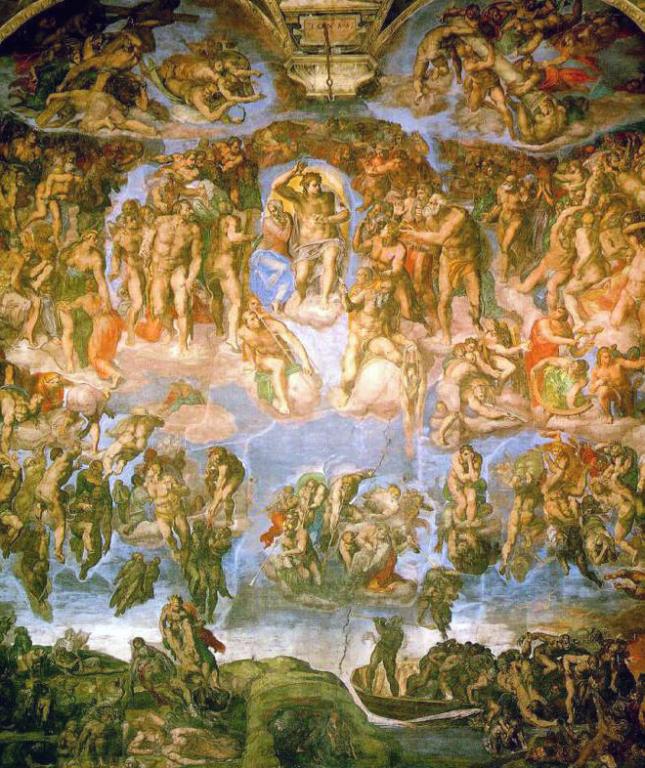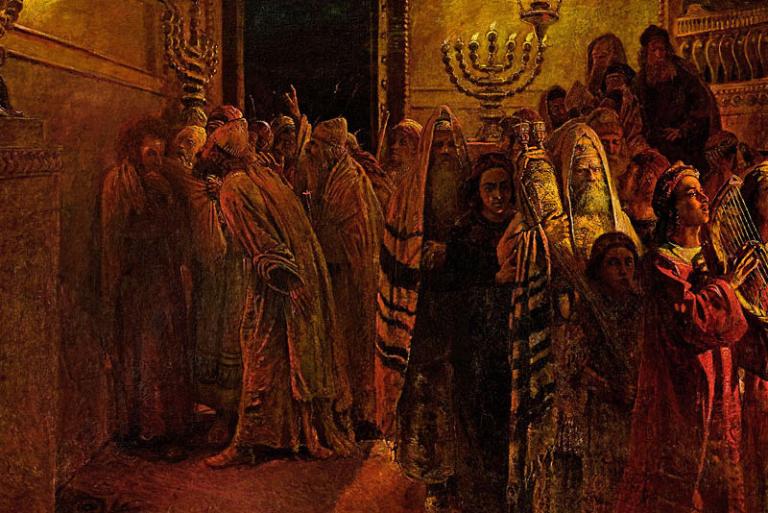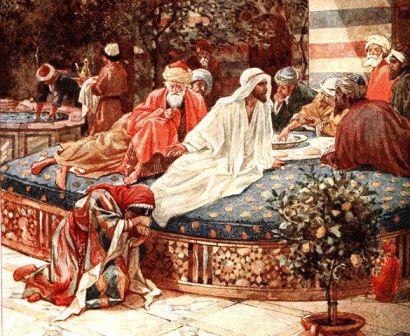
Englebert Fisen (d. 1733)
Wikimedia Commons Public Domain
Compare Matthew 3:17; 10:39; 16:24-25; 17:5; 20:28; 26:38-39; Mark 1:11; 8:34-35; 9:7; 10:45; 14:34-36; Luke 3:22; 9:23-24, 35; 10:18; 17:33; 22:41-42.
The prediction of his death given here by Jesus is quite clear.
So is his statement, in John 12:27, of the principal purpose of his life:
Νῦν ἡ ψυχή μου τετάρακται, καὶ τί εἴπω; πάτερ, σῶσόν με ἐκ τῆς ὥρας ταύτης. ἀλλὰ διὰ τοῦτο ἦλθον εἰς τὴν ὥραν ταύτην.
“Now my soul is troubled. And what should I say—‘Father, save me from this hour’? No, it is for this reason that I have come to this hour.”
Or here’s a paraphrase from The Message:
“Right now I am storm-tossed. And what am I going to say? ‘Father, get me out of this’? No, this is why I came in the first place.”
He didn’t come primarily to perform miracles, nor even, important though his teachings are, to teach.
He came to die.
He came to atone for our sins and then to break the chains of death through his victorious resurrection from the tomb.

(Wikimedia Commons public domain)
Compare Matthew 13:10-17; Mark 4:10-12; 8:17-18; Luke 8:9-10
Failure to follow Jesus can come from various causes. John here suggests two: (1) hard-hearted blindness, a failure (or refusal) to see what ought to be plainly evident, and (2) fear of human opinion and/or desire for human approval, which overwhelms belief — “for they loved the praise of men more than the praise of God.”
Neither will hold up well as a defense, come Judgment Day.

Nikolai Ge (d. 1894); Wikimedia Commons public domain
Compare Mark 11:18-19; Luke 19:47; 21:37; John 11:47-53
If the three synoptic gospels are accurate here, the death of Jesus was a pre-planned judicial assassination. And, quite illegally, the verdict in his “trial” was predetermined.

(Wikimedia Commons public domain)
Compare Luke 7:36-50; John 12:1-8
Our lives — and our obligations under the Gospel — present us with competing values.
Every cent could be spent on alleviating poverty, but that would leave nothing over for supporting the arts, building temples, funding missionary work, beautifying our lives, taking music lessons, attending concerts, and a host of other worthwhile and indeed excellent things. The world would be impoverished.
Love is a vitally important principle. But so is justice. So are standards. So is truth.
Mercy cannot rob justice. Kindness should not prevent us from speaking truth. And yet, sometimes, the truth shouldn’t be spoken, out of kindness.
Decisions are required at every turn. Balance should be sought. Banging on one key of the piano will never produce a great piece of music.
The complaint mentioned in these passages, that the money spent on ointment could have gone to the poor, was absolutely true. And yet Jesus, who cared deeply about the poor, didn’t endorse the complaint.
Life isn’t simple. We shouldn’t be simplistic.
And if a proposition can fit entirely on a bumper sticker, it’s very possibly much too simple to be a good rule for decisions.
Posted from London, England












